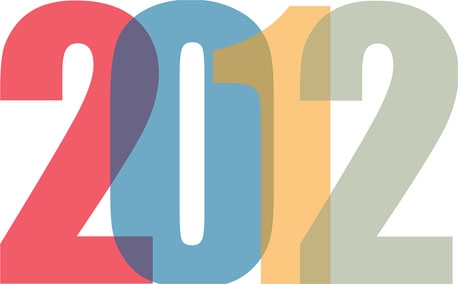FEATURE1 December 2011
All MRS websites use cookies to help us improve our services. Any data collected is anonymised. If you continue using this site without accepting cookies you may experience some performance issues. Read about our cookies here.
FEATURE1 December 2011
As 2011 draws to a close, we asked research industry figures to sum up their hopes and expectations for the year ahead in a single word.


Phil Tysoe
2011 was a year when many people lost their jobs. I know: I was one of them. 2012 won’t be any easier, so it might be tempting to play things safe, batten down the hatches and keep our heads below the parapet. But the worst thing we can do in an uncertain climate is become less certain.
2012 is not the time for the apparent safety and balance of “some customers liked it, some customers didn’t”. It’s not the time to tell clients (including internal ones) what they want to hear. It’s time to be bold, to have the guts to tell clients what they need to hear, whether they like it or not. It’s time for us to give voice to our knowledge and opinions – with passion and confidence.
This year reminded me that this industry is full of some of the smartest, sharpest, fun, individual, genuine people that I’ve had the fortune to meet and work with. People, irrespective of their methodological preference, in touch with customers and able to predict behaviour, identify opportunity and demonstrate how those opportunities can be realised.
People, clientside and agencyside, who are able to apply market research so that it shapes decision-making and moves organisations. Those qualities and skills are what we will need more than ever in the year ahead. In 2012 let’s be brave.
Phil Tysoe is insight and analysis manager at Argos

Tim Macer
Not one trend but a convergence of trends will make 2012 the year of promoting accessibility in research. Mobile research, for instance, is essentially about access: respondents aren’t participating, so why not take the research to the respondent, whether they are on the move or on the couch?
It’s happening any way. The number of people accessing ordinary online surveys on smartphones and tablets continues to rise by a few percentage points each year, with major implications for survey design and software, much of which does a terrible job at handling small-format devices. Some firms report that survey starts on mobile regularly top
six per cent now – whether it reaches 10% in 2012 or 2013 is a matter of timing. Making surveys accessible to mobile devices may be inconvenient, but it has its advantages too – either way, it’s a shift that cannot be ignored.
At the other end of the chain there is a voracious appetite for getting data into the hands of insight managers and decision-makers. Demand for dashboards, online portals and analytical tools to deliver research findings straight to the end user continues to rise. To facilitate this, a new breed of software products is appearing with ideas learned from the web and from the world of business intelligence.
Products such as Red Centre’s Ruby, Dapresy’s Storyteller, Q from Numbers International, Information Tools and Gamma/PAI’s mTABview are starting to chip away at the hegemony of PowerPoint as a means of delivering research findings. While each takes a very different approach, what they share is an understanding that making research accessible stems from presenting data visually and in an environment that encourages exploration.
Tim Macer is managing director at Meaning

Wendy Gordon
‘I like the ads better than the programmes’ could be an epitaph for advertising in the 80s, when it was largely defined by TV. Today the public has a broader definition of advertising to include all forms of marketing and sales.
Two phrases dominate conversations about advertising today: bombardment and invasion of privacy. People feel that they have little or no control over the endless flow of unsolicited and creatively unrewarding advertising that pervades life – on their computer, mobile phone, watching TV, walking the streets or in the cinema.
On top of this the public believes advertisers behave badly and have forgotten the rules of good manners. Companies are seen to cross the psychological boundary that protects a person’s privacy. People feel spied on (behavioural targeting, facial recognition, GPS), manipulated (inconsistent opt-in/out clauses and dodgy online data gatherers) and held to ransom (pressure to agree to incomprehensible terms and conditions). Technology does not give companies permission to forget about respect.
Those of us involved in all disciplines related to marketing – including research – need to rediscover respect. Encourage client observers to stop hiding behind a mirror and thank people face to face for their willingness to participate in research. Let’s set up a forum for the board to meet its customers and hear it straight. Let’s stop muttering about stupidity when we now know more about the biases in decision-making than ever before. Let’s be more honest and call it out when we worry about the social impact of our commercial recommendations.
Respect is not an easy road to follow but it’s my call for 2012 and beyond.
Wendy Gordon is a partner at Acacia Avenue

Jan Hofmeyr
There have been multiple new developments in marketing research in recent years. The use of neural measurement, the ability to measure people’s opinions in situ or on the move, listening to brand mentions on the web and gamification. Academics have taken our understanding of human nature forward in important ways – through neuroimaging, behavioural economics and evolutionary psychology. People are communicating with one another more than ever and in ways that are relevant to marketers.
If I had to choose one word to describe our industry response to all this newness up to now, it would be proliferation. There are many companies, old and new, offering new ideas, new measurement techniques, and new methods to deliver the resulting information. But there is only so much innovation that people and companies can handle. At some point we need to pull back, see through the hype, and work out what kinds of information make a lasting difference to marketers’ ability to grow their businesses.
That’s why I chose the word discrimination – a good part of the coming year will be spent identifying what’s worth doing and keeping, and what isn’t.
There are two other words that can’t be ignored: automation and integration. We are under continued pressure to deliver information cheaply. This can only be done through automation. And if discrimination is about identifying what kinds of information make a difference, integration is about putting it all together so marketers have a complete understanding of their markets. The winning companies will be those that discriminate, automate and integrate for their clients.
Jan Hofmeyr is chief research for behaviour change at TNS

Howard Fienberg
In 2012 researchers will feel the growing spectre of government looking over their shoulders. After decades of regulatory denial and some lucky close calls (like the Do Not Call registry), the research profession will tangle with revenue-hungry state governments willing to declare that focus group and panel respondents are employees and impose crippling employment taxes and regulations on research companies.
Growing social media monitoring and big data will catalyse consumer activists and legislators to try to differentiate the purposes for which data is collected, used and shared – or to accept that such differences in purpose (e.g. direct marketing v marketing research) are meaningful.
California, always at the forefront of consumer and privacy issues, will continue to consider bills that restrict data sharing and transfer. The Federal Trade Commission, having finalised its data privacy principles, will continue to apply them against companies found guilty of unfair or deceptive trade practices. As demonstrated in the Google Buzz case, violators could face decades of micromanagement of their data flow and privacy practices – adversely affecting their partners, customers and suppliers.
But while regulators tighten the privacy screws, legislators will seek a more measured approach. The major focus of Congress will be a federal data security law that does not impede research data and pre-empts the confusing patchwork of conflicting state laws. The House of Representatives, after numerous hearings on data privacy in 2011, may seek to accommodate activists’ and Democrats’ concerns by legislating a baseline for consumer privacy – a compromise with the much more severe regime proposed by the Senate. Just over the horizon is a push for global harmonisation of privacy regulations.
Howard Fienberg is director of government affairs at the Marketing Research Association

Annie Pettit
Sesame Street taught us many important things – including the value of cooperation. The skills of the many outweigh the skills of the few, but only when everyone works together. The same theory applies in the market research space.
The recent growth and increasing adoption of many new tools, including social media research, online communities, neuroscience, eye-tracking, gamification and other innovative solutions, have jolted researchers into a new era filled with fabulous opportunities to reach into our growing toolboxes and pull out tools that are better suited to the job at hand. Where we once had few tools that solved many problems well, we now have at our fingertips a selection of tools that allows us to solve even more problems even better.
2012 will be the year when researchers take the quantitative and census representative findings of surveys, add them to the insights gained from one-to-one online interviews and focus groups, combine it with the analyses of massive social media research studies, and pick apart tiny decision factors using neuroscience. 2011 hinted at this trend with many demands for more multi-method projects and method collaborations, but 2012 will be the year we make it happen.
It will also be the year when researchers cooperate with each other on a human level. The new tools will force us out of our shells, further from our comfort zones, and into new and unfamiliar ways of creating data. We will accept that we are experts in our own fields and become advocates for the growing fields that enrich and complement our own areas of expertise.
This opinion has been brought to you by the letter C and the number 1.
Annie Pettit is vice president of research standards and chief research officer, Conversition Strategies

Fiona Blades
2012 will be the year when researchers question the focus on the individual in isolation and start considering the system. Co-creation, collaboration, communities and context have all become watchwords in the research world recently. This indicates a trend towards thinking about systems and how they work.
Systems have always been at play, of course, but haven’t had the attention that research will bring to them in 2012. For example, a shopper buying for a household is part of a family system with other influencers affecting decision-making. While ethnographic research would pick this up, most quantitative surveying doesn’t. By focusing purely on the individual we miss important dynamics.
The world wide web, a system in its own right, is transforming the way we can gather information. We can see new connections – people who bought this book also liked these. More dramatically it is bringing people together through social networking. If someone is unhappy with their bank or soft drink, it won’t be long before their expanding network knows about this. Only 10 years ago, this might be shared with four or five close friends and family. Now people’s networks extend into the hundreds or thousands.
From a business perspective clients need agencies (creative, media and research) working together. A research agency advising a client is part of a system that involves other stakeholders. We need to consider this system to ensure our findings are delivered at the right time in the right way to the right people.
Mark Earls, John Kearon of BrainJuicer and more recently Beverly Clarke of System B are three people taking a more system-oriented perspective on the way to find truth from research. In 2012 we’ll see others do the same.
Fiona Blades is chief executive of Mesh Planning

Neil Mortensen
Numberwang: meaningless numbers presented as though they are important. Please God can this stop next year? Because it threatens to ruin research for those of us who are genuinely trying to provide some insight, rather than just take the shilling and offer up the findings.
The proliferation of data and online surveys means we must have a bit more integrity in our research. We must guard against research that starts with a desired result and works backwards. There is an increasingly perverse (reverse) relationship between newspaper column inches and the actual level of insight and value of the research being reported.
Too much numberwanging gets reported. Journalists have less and less time to churn out stories to feed the 24/7 news agenda. Spoonfeeding them quick and dirty headlines based on quick and dirty research is nothing new, but it is starting to muddy the pitch for proper research.
Nowhere is the pitch muddier than in the realm of media research where – naming no names – I’m seeing more and more numberwang research with methodologies that are simply not fit for purpose. They are then accepted at face value by reporters who often don’t have the time or the skills to unpick whether the approach is appropriate to the subject. They must be strangled at birth (the research, not the journalists) because it is simply bad advice and, once they are reported, it is almost impossible to put the misleading genies back in their bottles – although that doesn’t mean we shouldn’t try.
Media is a nuanced, complex subject and assessing the caprices of human behaviour in this area must be nuanced and complex itself.
In 2012, we need to ensure that the good stuff thrives and the numberwang withers on the vine.
Neil Mortensen is research and planning director at ThinkBox

Dave Goldberg
Transparency is often overlooked in favour of terms like quality and methodological rigour. But you can’t have any of these attributes without transparency.
The insights industry is undoubtedly experiencing change. From pay for performance, to further consolidation, to emerging methods – such as social media monitoring, gamification and mobile, the turmoil and uncertainty has reinvigorated the focus on transparency.
Any new method needs to be explained, vetted and tested in ways that are honest, open, and true. For example, the approach taken in the last decade with regard to panel sourcing and management has led to a system, today, that relies heavily on survey routers. And while panel companies have invested heavily in these systems, the accompanying investment in transparency has been relatively scant.
All of the companies employing new methods of data collection begin with a claim that quality is destined to improve by means of the new method at hand. Indeed, nearly every company in this space hangs its hat on quality. But marketing materials claiming quality and transparent methods virtually never come with fully disclosed data. Quality cannot be measured, let alone delivered, without the commensurate evidence in support of the claim. Only through transparency can quality be achieved, assessed and ranked.
The firms that embrace real transparency in support of quality stand to see significant gains in market share for their respective area of this industry and will improve quality for everyone.
Dave Goldberg is CEO of SurveyMonkey

Edward Appleton
I predict that research in 2012 is going to move away from a traditional silo organisational model and intensify its interaction across the functional boundaries within companies.
The voice of the customer will increasingly be emanating from all parts of the organisation – online marketing, social media, customer service, sales, marketing and, who knows, maybe even supply chain and finance. Market research won’t own all this data, but we will increasingly become a custodian of it, and hopefully the best manager and interpreter.
The value that research can provide in this data-rich environment will be as a centralised source of insights that has the best overview of various data sources and how they fit together holistically. Our task will be to take different types of data, fuse them together into a narrative thread, and then ensure that out of this mass of data we have cogent, concise insights that inform business decisions.
Cuisine has become richer through fusion. Why not research too?
Edward Appleton is European customer insights manager at Avery Dennison
5 Comments
Ross Broadbent
12 years ago
My word for 2012 is 'Emotion' We see much talk of 'sentiment analysis' where the sentiment is basic and there is no analysis. SA has its limitations. Delving beyond sentiment to look at the range of emotions felt and experienced by consumers helps us determine the likelihood of them substituting products or services for competitor offerings. There are ways to look below the emotional horizon at which sentiment analysis stops. Sentiment analysis has managed to get away with a lot through simplicity and not having the ability to look at the depth of feeling. When we consider the implications of what motivates consumers and how they real experience their emotions, what drives them, then we can start to unravel their behaviour. We don't need to go to the great lengths of 'eye-tracking' and 'neuro-lingusitics' to mine the emotions of our audiences. Language itself is key. I believe that in 2012 there will be significant developments that allow greater human understanding, even in a remote context (online).
Like Reply Report
Shaleen Sharma
12 years ago
Innovation - yes we have all heard the word countless number of times- from motivational conferences, training to articles. Unfortunately, it is the tough times when people have a tendancy to clamp down on innovation and go along the tried and tested path. But history has shown that a company that continues to innovate will make the real difference. Sure, 90% of all new ideas never make it to the real world, but that should not stop us from developing and nurturing an environment which promotes this. And what better environment in a corporate world than market research? And what better times than now? Client's want to spend less, but need MR more than ever to survive the mayhem. We NEED new ways to think, to set us apart from the rest more than ever. And take a close look at the article above, does'nt it overall ask for innovation as well?
Like Reply Report
DJ
12 years ago
Experimenting: Coming years would be experiencing a major transformation from traditional F2F interview to more of computer aided and Mobile based research. In the arena of Digital space research will experiment more with what works and what not. While they will deep delve into all possible why’s of the digital space – what, where, how, with whom, why not, when etc, Consumer might be more surprised and open. Next 5 years would be big Game changer for industry.
Like Reply Report
@Naim_Mejaat (Twitter)
12 years ago
Accuracy ! We can't deny a lack of accuracy ! We need more and more rigor and more over by using social networks. Keeping in mnd that our job is to help decision makers, we need to provide usable datas and not only "a number of completes for a number of questions".
Like Reply Report
Katharine Newton
12 years ago
My word for 2012 is also Emotion. I feel that 2012 will be the year when the research industry, agency and client side together, really start to champion research into consumer emotions. I foresee a lot more talk of: - the emotional journey shoppers go through when doing their shopping - the hot and cold spots of store layouts - the relationship between emotion and product engagement, conversion and repeat purchase - the relationship between emotions and long term brand engagement and loyalty But getting retailers to buy into it will be the challenge. For that to happen researchers will need to focus on the practical applications, all the while showing the connection between having a deeper understanding of the emotional motivations behind decision making and retailers' ability to grow their business. I believe that in 2012 emotional insights with commercial viability will be key.
Like Reply Report